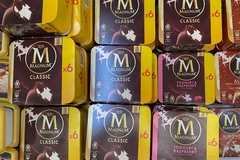
- Industry news
Industry news
- Category news
Category news
- Reports
- Key trends
- Multimedia
- Journal
- Events
- Suppliers
- Home
- Industry news
Industry news
- Category news
Category news
- Reports
- Key trends
- Multimedia
- Events
- Suppliers
Biocatalysts Promote Enzymes that Help to Improve Meat Tenderization
22 Feb 2012

There is a widespread use of enzymes in the formulation of marinades and tenderizing recipes. Marinade enzymes can be added directly to meat, but in most cases they are used as part of a “marinade formulation” which could include salt, sugars, herbs and spices and preservatives.
Feb 22 2012 --- Marination is a method of food preparation that has been around for thousands of years. Marinades are properly defined as seasoned liquids in which meat, seafood or vegetables are soaked to provide flavour and/or tenderization.

There is a widespread use of enzymes in the formulation of marinades and tenderizing recipes. Marinade enzymes can be added directly to meat, but in most cases they are used as part of a “marinade formulation” which could include salt, sugars, herbs and spices and preservatives. The marinade formulation can be produced as a powder, to sprinkle directly over the surface of the meat, or as a liquid, in which the meat can be soaked or tumbled.
Enzyme based marinade formulations can significantly improve meat quality, increasing its value and giving other benefits including:
• Softening and tenderizing the meat.
• Improving the texture of the meat.
• Improving the mouth feel and flavour of the meat.
• Generating savoury peptides that enhance the ‘meaty’ flavour.
• Facilitating the production of Maillard reaction flavours.
• Breaking down connective tissues.
• Improving the characteristics of low quality meats so they are more palatable to consumers.
Biocatalysts Ltd can offer a range of enzymes that are ideal for use in marinades. Promod 144P is a fruit derived enzyme used in both marination and tenderization. P144P works efficiently on tougher types of meat such as steak, and is the best option if you want a cost effective tenderizing enzyme. Whereas Promod 184P, also a fruit derived enzyme is ideally suited for use in meat tenderizing marinades as it is soluble in oil making it suitable for oil based marinades.
All content and features on this website are copyrighted with all rights reserved. The full details can be found in our privacy statement
Subscribe to our newsletters
By continuing to browse our site you agree to our Privacy Statement










